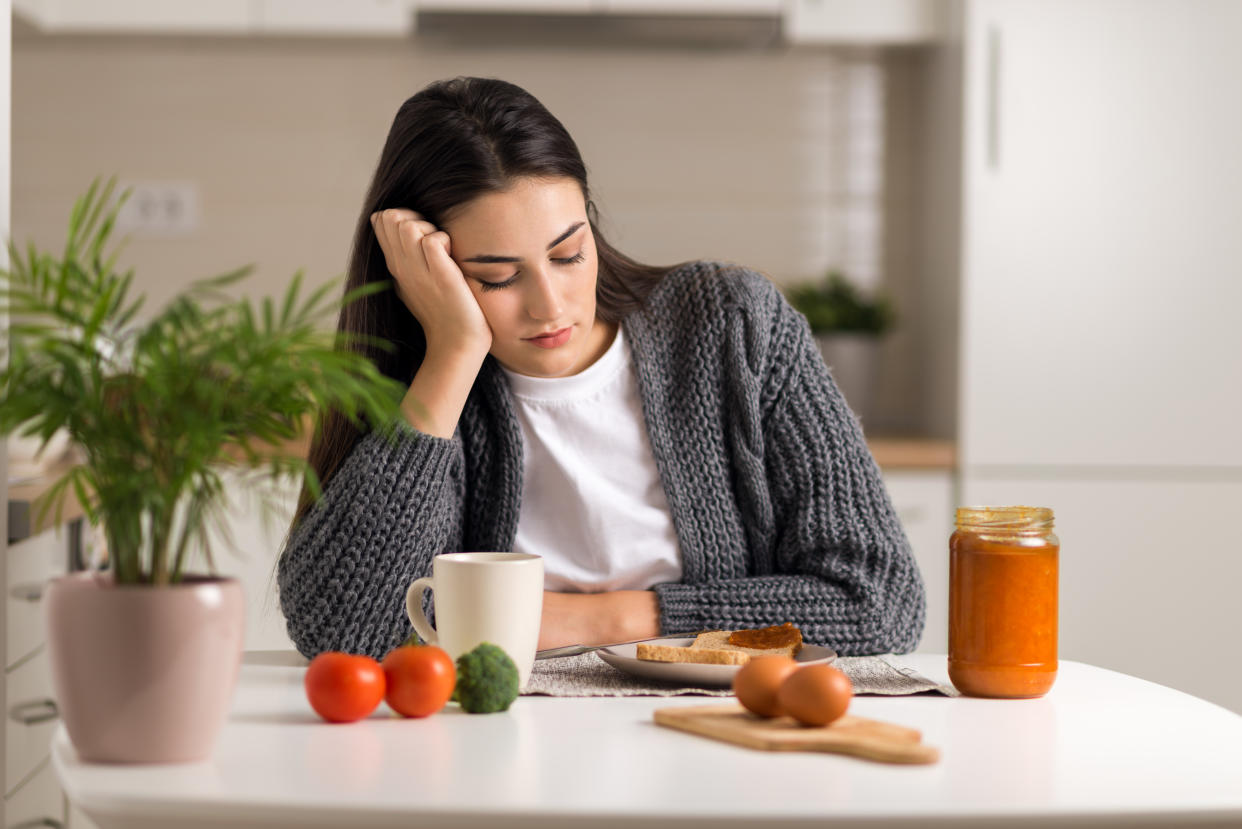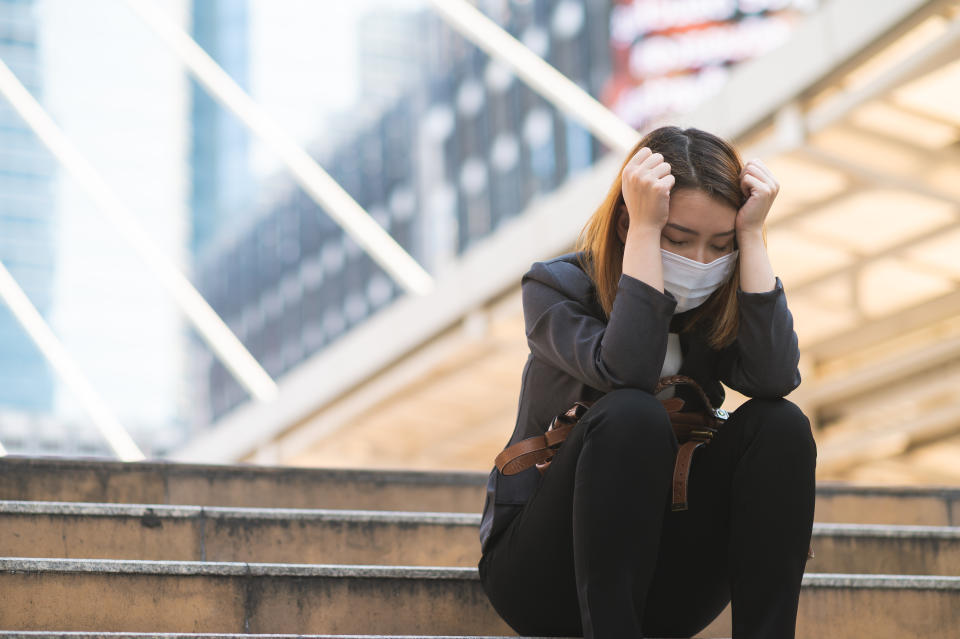7 lesser known symptoms of depression

Almost one in five people have suffered depressive symptoms during the coronavirus pandemic, according to figures from the Office of National Statistics.
This figure has almost doubled since before the COVID-19 outbreak, with people increasingly concerned about their health, job security and money management.
While some symptoms of depression, like a lack of energy and anxious feelings, are well-known signs that something isn’t right, there are lesser known symptoms to consider, too.
Read more: Michelle Obama is suffering from “low-grade depression”
Rosie Weatherley, information content manager at Mind, explained to Yahoo UK that because there are “so many different signs and symptoms of depression and it affects people differently, it’s hard to know when someone might be suffering”.
“Mental health problems can affect not just our thoughts and feelings, but our behaviour too. Mental health problems can also have physical symptoms. You might feel down, restless, irritable, guilty or isolated and unable to relate to other people.
“Or you may experience a sense of unreality and feel empty or numb. You may avoid social events and activities you usually enjoy, find making decisions difficult or have difficulty remembering or concentrating on things. You might notice you’re eating or sleeping more or less than usual. You may also find that you feel tired all the time or experience physical aches and pains with no obvious cause.”
Some of the lesser know symptoms of depression include:

Impatience
“If things don’t go right, you get very quickly annoyed, and you can often lash out and regret it,” Linda Blair, clinical psychologist and author of Key To Calm, explains.
Being in lockdown can make you feel impatient about how your life has been impacted and so this may not be a sign of depression, but if this behaviour feels slightly alien to you, then it’s worth considering whether there might be more behind it.
Isolation
Coming out of lockdown has been difficult, as has adjusting to the “new normal” where social distancing and face masks have become part of our everyday lives.
But if you’re feeling especially cut off and lacking the will to make connections, that could be a sign of low-level depression.
People suffering might “feel more isolated and not choose to make contact with friends, or instigate get-togethers,” senior therapist, Sally Baker explains.
“Not going outside regularly during daylight reduces a person’s ability to produce Vitamin D. Low levels of this vitamin are closely associated with symptoms of depression.”
Not wanting to make plans is another area to consider as Blair adds: “People with low-grade depression might say ‘don’t ask me to plan anything’.”
Read more: Half of mums suffering from poor mental health during pandemic
Reliance on technology
Daily TV briefings became part of our lives during the height of the pandemic.
Many people admitted they didn’t watch the briefings because they found too difficult to consume so much negative news, but others have entered into a behaviour known as “doom-scrolling”.
“An increase in compulsive doom-scrolling on news platforms that impacts mood” is not good, Baker explains.
Problems with digestion and food
Many people who have felt anxious in the past will know that your stomach can often be the first indicator that something isn’t quite right.
“Symptoms such as upset stomach and diarrhoea as the brain-gut axis struggles to cope with extended period of stress,” explains Baker.
It’s not just digestive issues to watch out for, either. If you’ve noticed yourself slipping out of your usual eating routines and “self medicating with carbohydrates”, this could also signal that something isn’t right.
Carbohydrates “have a calming effect on the brain similar to serotonin” according to Baker.
Similarly, an increase in “solo drinking” can signify depressive behaviour.
Read more: Women are more likely to suffer post-natal depression during coronavirus pandemic
A change in your skin
“A flare up of skin conditions that respond to stress in the body such as psoriasis, rosacea, and eczema,” is something to watch out for, Baker says.
Tossing and turning at night
Baker also notes that “a stress pattern of insomnia with middle of the night or very early morning waking,” could signify early signs of depression.
Struggling to focus
“If you can’t settle down or focus on anything, this is a sign of low-level depression,” Blair explains. “With the pandemic, we’ve had a sense of danger for so long, meaning our cortisol levels are on a constant high.
“Although you might feel like you’re not focusing on anything, what you’re actually focusing on is the dangers of coronavirus.”
Baker agrees and adds: “You might notice an increase in incidences of ‘brain-fog’ which is the subconscious mind’s way of protecting someone from the extremely challenging circumstances they are living through. Brain-fog is a common symptom of grief and many people are in mourning for the life they used to live.”
Similarly, “more incidences of overthinking and catastrophic styles of thinking as a way of trying to manage feelings of overwhelm” might occur when you’re suffering from depression.
What should you do if you think you may be suffering from depression?
“If you notice changes to your feelings, thoughts or behaviours that are impacting on your daily life, last longer than two weeks, or keep returning, speak to someone you trust,” said Weatherley.
“Mental health problems like depression are common and treatable, so if you’re worried, talk to your GP who should be able to outline the help and support that’s available.”




